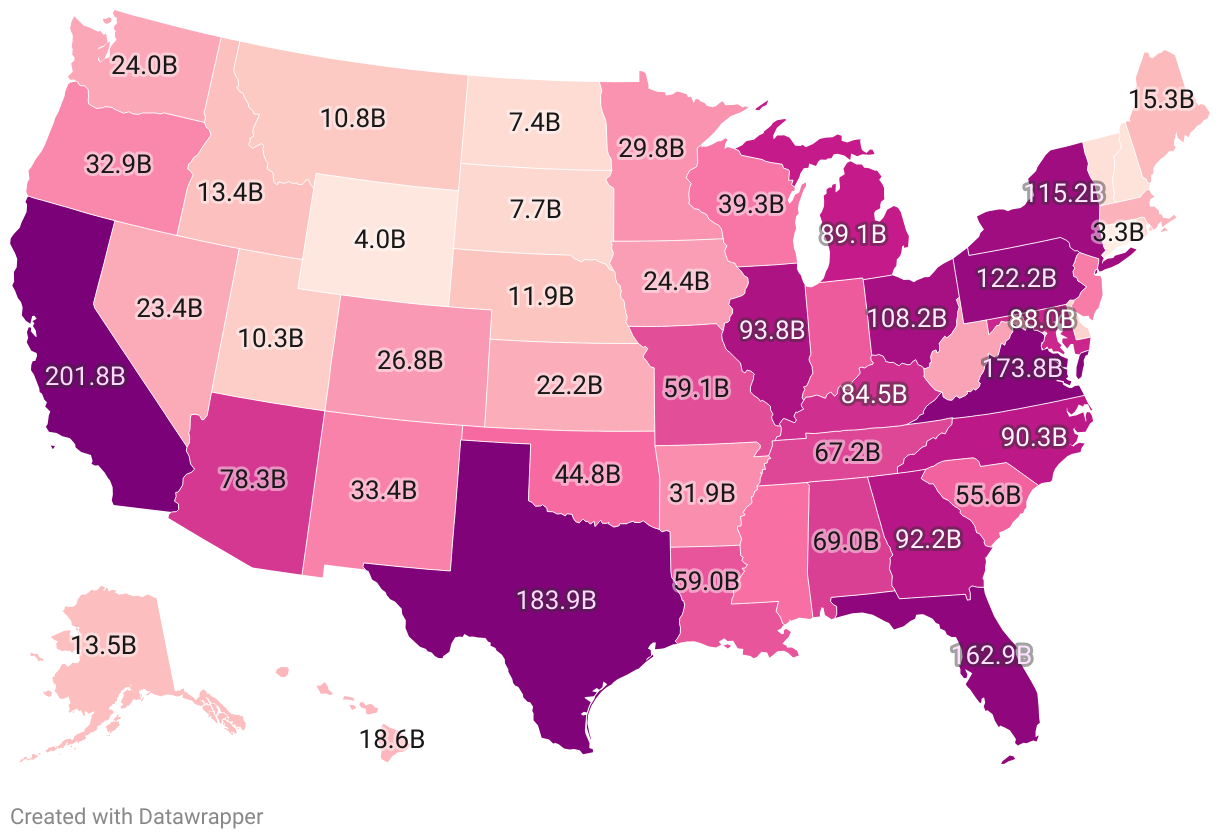This ZIP Code Bill Is a Trojan Horse for Wealthy Suburbs
What do 74 wealthy towns, a rushed deadline, and a bill with no reason have in common?
You get a letter in the mail that says your ZIP Code has changed. No warning, no explanation. Just a quiet update from the United States Postal Service. You toss it aside. Seems minor. Just a number, right?
Just days ago, Lauren Boebert introduced a bill was introduced in Congress that tells the USPS to assign unique ZIP Codes to a list of over seventy select communities. The bill is named H.R. 3095.
These aren’t underserved rural towns without mail service. They’re largely affluent, Republican-leaning suburbs and resort-style towns that currently share ZIP Codes with nearby areas that are poorer, more diverse, or less politically aligned. The list includes places like Castle Pines, Lone Tree, and Severance in Colorado, and Carmel, Westfield, and Zionsville in Indiana. These are places where the household income is >$150,000/ year on average, and over 90% of votes were red.
At first glance, the bill looks boring. Bureaucratic. Maybe a fix for routing errors or mail mix-ups. However, when you really look at what ZIP Codes do, and what changes when one is redrawn, this starts to look like something else entirely. It starts to look like strategic separation.
H.R. 3095 is shockingly barebones.
This bill the USPS just 270 days to create new ZIP Codes for more than 70 towns. Nowhere in the bill does it explain why these towns were chosen. There is no public data, no stated problem, and no clear criteria. There is no mention of urgent delivery issues, community requests, or USPS input. Instead, the bill contains one vague and suspicious phrase: “and for other purposes.” That phrase allows the policy to be interpreted loosely or expanded in the future, with little to no oversight.
This is not how transparent policymaking works. This is a targeted restructuring of how geographic identity and access to services are organized. It gives select communities a cleaner statistical slate and leaves everyone else behind to carry the weight.
The bill does not name a problem. It simply offers a solution to a group that never publicly asked for one. That should raise questions. What is this really about? And who, exactly, stands to gain from slipping this change through unnoticed?
See, ZIP Codes affect much more than mail. They shape how services, funding, and opportunity are distributed. They influence school boundaries, insurance rates, ambulance response times, property values, infrastructure decisions, and voting maps. Changing a ZIP Code changes how a community is seen and served.
When a wealthy town splits off, the difference is immediate. On paper, crime rates drop, income rises, property values go up, and schools look better. Meanwhile, the ZIP left behind looks worse, even if nothing has changed.
It now carries more poverty, lower test scores, and higher insurance risks. This reshuffling can quietly impact who gets grants, resources, and services.
That means:
Local schools may lose funding as average income in the ZIP drops
Insurance rates go up for families left in the old ZIP
Property values fall as the data shifts
Public transit, clinics, and infrastructure may be deprioritized
The Republican Wealth Illusion
While Boebert claims that giving these towns their own ZIP Codes will “improve insurance rates, mail delivery, response times, and access to public services,” she is implicitly blaming the current shared ZIP Code setup for holding those towns back. And who are they currently sharing with? Nearby communities that are poorer, more racially diverse, or statistically less “desirable.”
Most of the towns selected are in Republican-leaning districts. These are not struggling areas. They are fast-growing, politically conservative, and already well-resourced. Giving them a new ZIP Code is not a fix. It is a reward. It gives these communities a stronger public profile, higher property values, and cleaner data just in time for the next election cycle.
This is not just about mail. It is about shaping political power. With better metrics and more focused boundaries, these ZIPs become prime targets for developers, campaign donors, and redistricting maps. Meanwhile, the communities left behind, often poorer, more diverse, or more progressive, lose funding, visibility, and influence. Boebert is not just cleaning up ZIP Codes. She is cleaning up voting blocs.
Here is where it gets even more hollow. Many of the same red states and Republican-leaning towns benefiting from this bill already take more from the federal government than they give. States like Mississippi, Kentucky, and Alabama rely heavily on federal aid. Even Colorado, Boebert’s home state, receives more in federal funding than it contributes.
The towns on her ZIP list are often propped up by tax dollars from blue states like California and New York.
They want to opt out of shared consequences locally while continuing to reap the rewards of federal investments.
So the people asking to split off, to rebrand, to polish their stats, to separate themselves from the neighbors they share services with, are the same people who have been funded and stabilized by the very system they now want to abandon.
They do not want to pay it forward. They want out. Not just from the ZIP, but from any statistical or structural tie to the people they think are dragging them down.
What Boebert is offering is not efficiency. It is an exit strategy. A quiet, permanent shift in how power, funding, and opportunity are distributed. No fences required, just five little digits and the full weight of federal design behind them.








Gerrymandering by another name, in another form. Just as nefarious as redistricting.
Footprints of segregation